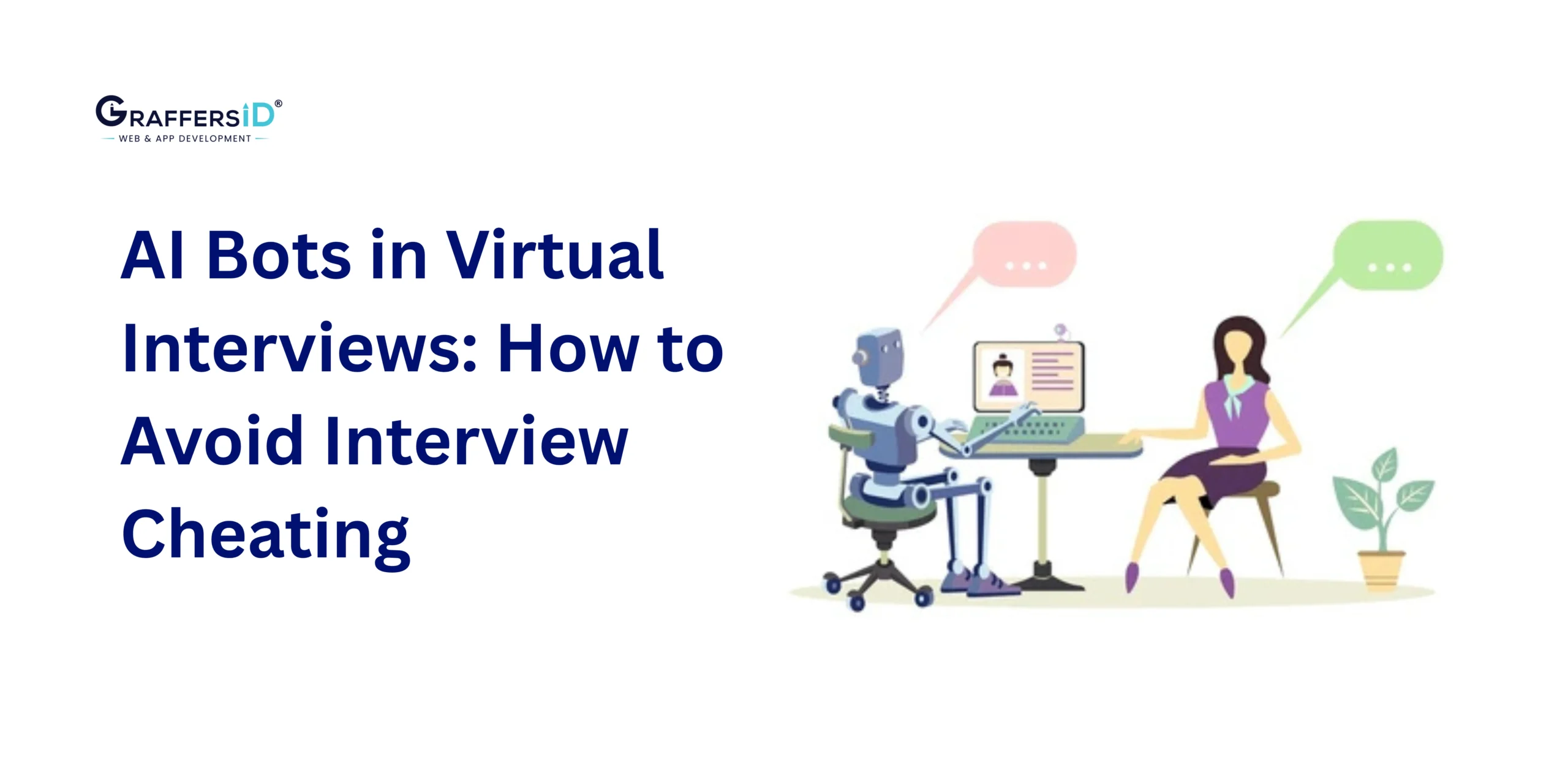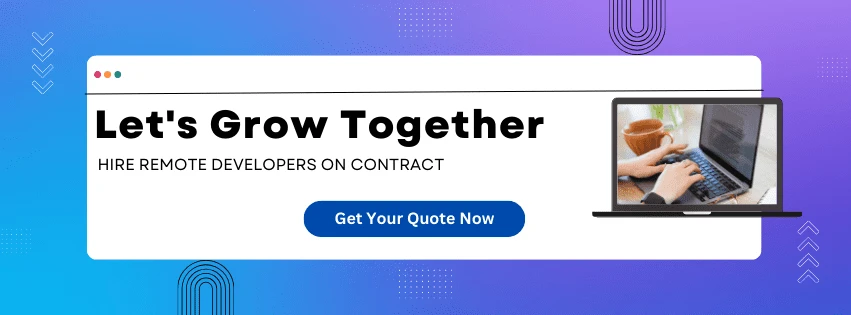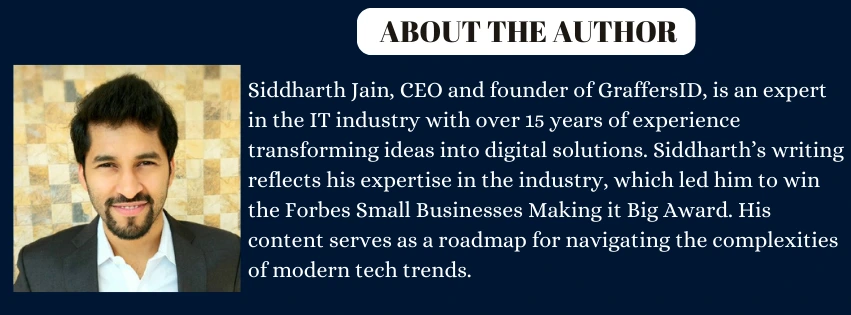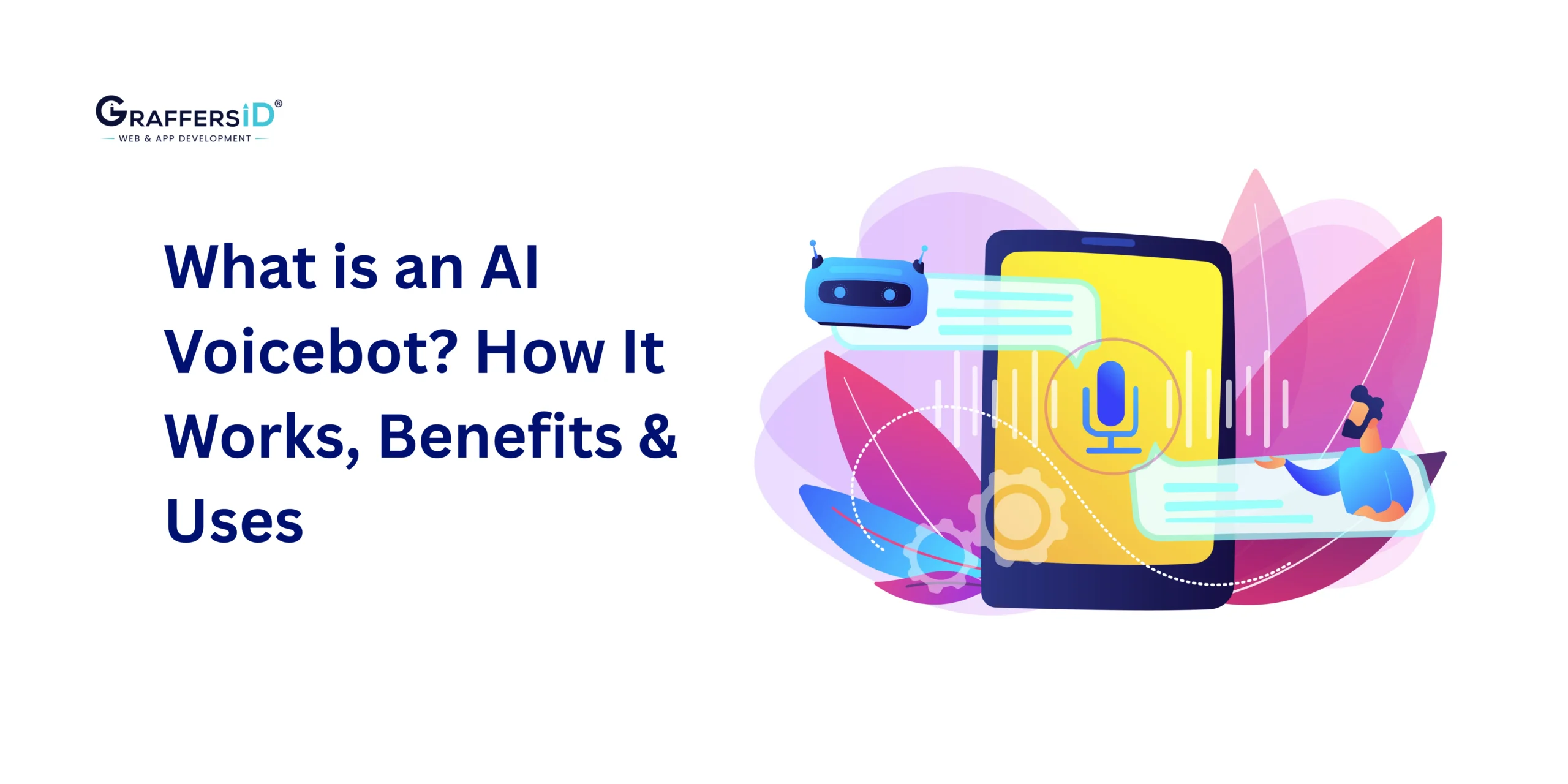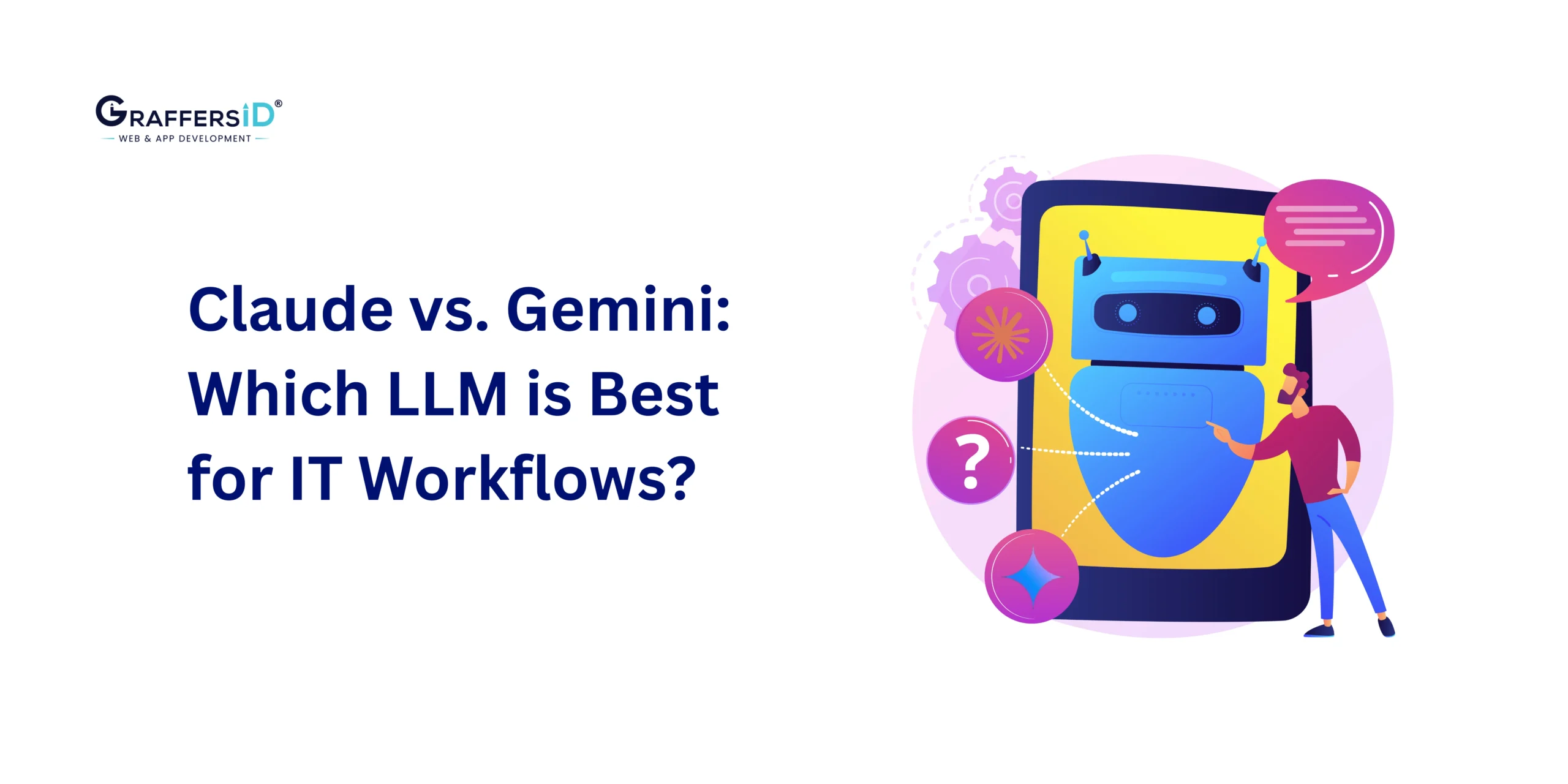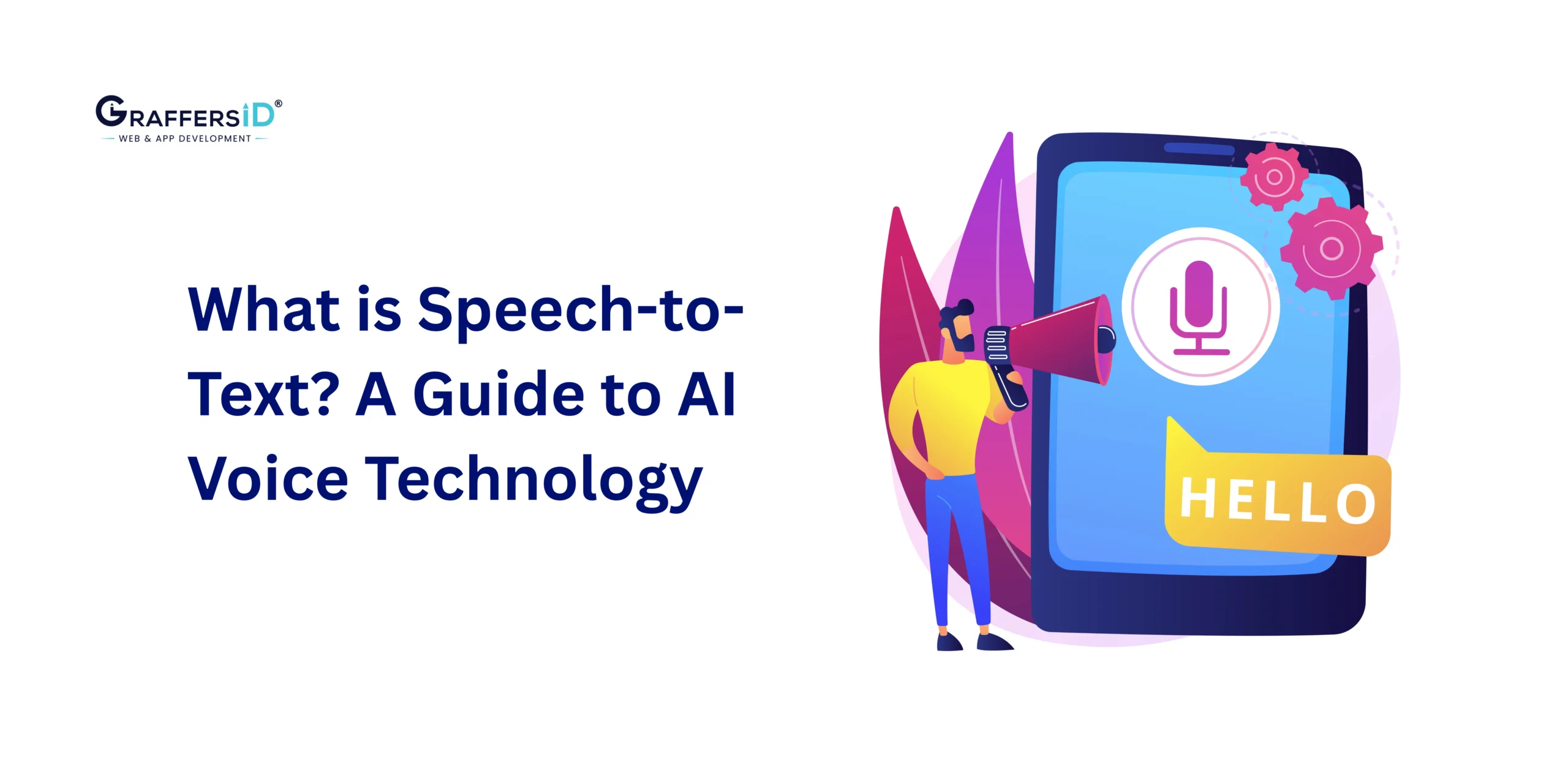In 2026, AI-driven virtual interviews have revolutionized tech hiring, making it faster, scalable, and accessible to top talent worldwide. But with innovation comes new challenges: candidates are increasingly leveraging AI tools to cheat coding assessments, manipulate video interviews, or receive real-time assistance, putting the integrity of the hiring process at risk.
For CTOs, CEOs, and hiring managers, the consequences are significant, wrong hires can lead to project delays, flawed software, security vulnerabilities, and wasted engineering resources. Understanding how AI is being misused and adopting strategies to detect and prevent fraud has never been more critical.
In this blog, we dive into the latest AI cheating techniques in tech interviews, their potential impact on your organization, and practical, actionable solutions to ensure you hire truly skilled developers in 2026.
Common Ways AI Is Misused in Virtual Tech Interviews?
As technology continues to evolve with AI, developers and IT experts have found new ways of cheating hiring processes. Here are the most common AI-driven ways of cheating with AI in tech interviews:
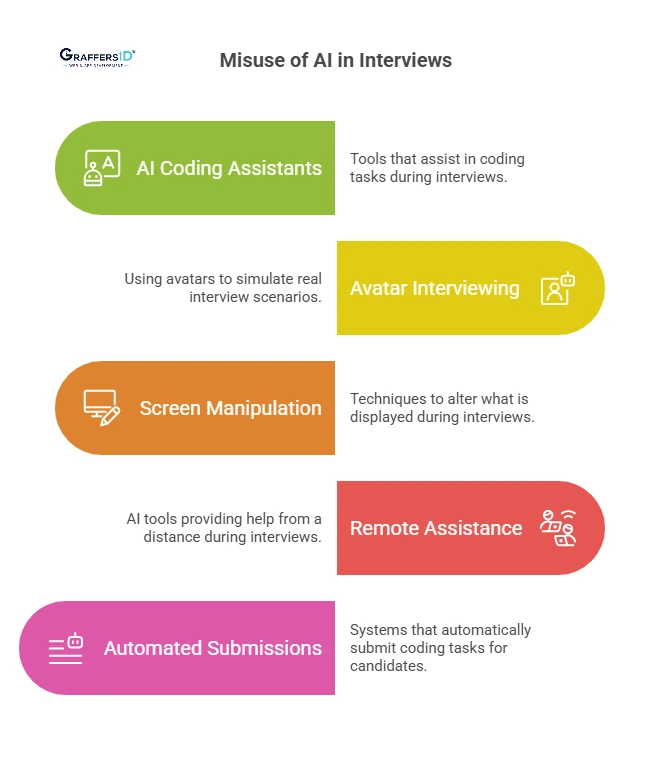
1. AI-Powered Coding Assistants
Candidates use AI coding tools like GitHub Copilot, ChatGPT, and AWS CodeWhisperer to generate instant code solutions. Even when partially edited, AI-generated code bypasses logical reasoning checks, making it difficult to assess true coding skills.
Example: A candidate may copy AI-generated code to solve a complex algorithm problem but fail to explain it during a pair programming session.
Impact: Misleading assessments make it difficult to hire developers who can debug, optimize, or solve real-world problems.
2. Deepfake & Avatar-Based Interviews
AI-driven avatars and lip-syncing software allow candidates to fake live video interviews. Applicants can present another person’s knowledge without appearing in the interview themselves or use prerecorded AI-generated answers.
Impact: Interviewers may never verify if the candidate has genuine skills or knowledge.
3. Screen & Camera Manipulation
Tech-savvy candidates can exploit dual screens, browser extensions, or hidden AI tools to submit real-time solutions while appearing attentive. This allows candidates to cheat without the interviewer’s knowledge.
Impact: This invisible assistance undermines remote hiring authenticity.
4. AI-Powered Remote Assistance
Voice-based AI systems like Whisper AI can deliver live answers during interviews. Combined with human guidance, this creates an unfair advantage, masking true problem-solving capabilities instead of showing their actual skills.
5. Automated Coding Submissions
Some tools auto-complete coding tasks, pull solutions from GitHub/Stack Overflow, and even submit them automatically on behalf of candidates.
Impact: Hiring managers cannot differentiate between genuine expertise and automated solutions.
Read More: Top 5 AI Coding Assistants in 2026 Every CTO Should Know About
Impact of AI Cheating on Tech Employers
Hiring top talent for software development, cybersecurity, and IT infrastructure is important for tech companies. When AI is misused in hiring, the risks involved can be serious, such as:
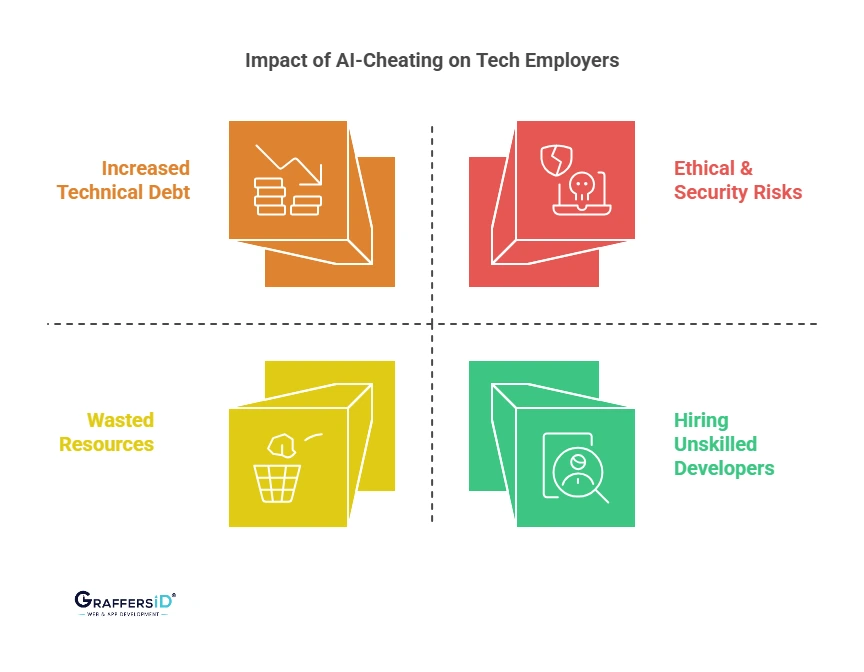
1. Hiring Unqualified Developers
AI-assisted cheating means companies may hire developers who cannot code or troubleshoot real-world problems. This results in project failures because such candidates can’t debug, optimize code, or develop efficient algorithms. In case they are given complex work, they might be unable to provide outputs without the help of AI.
2. Technical Debt & Poor Software Quality
Unskilled developers may produce poor code quality, resulting in maintenance challenges, security vulnerabilities, and technological debt. Bug-ridden software can have an impact on user experience, cause downtime, and result in financial losses for IT companies.
3. Wasted Engineering Resources
Incorrect technical hiring wastes onboarding, training, and mentoring resources. Senior developers have to spend more time fixing mistakes made by unfit employees, leading to delays in important projects and reduced productivity.
4. Ethical & Security Risks
Companies that handle sensitive data and exclusive software face major security concerns if they hire unqualified developers through AI-assisted cheating. A poorly skilled developer may unintentionally create security issues, subjecting the company to cyber risks and data leaks.
Did You Know?
Recent surveys indicate 45% of developers admitted to using AI tools during coding assessments, emphasizing the growing risk.
How Can Tech Companies Prevent AI-Assisted Interview Cheating in 2026?
While AI has created hiring challenges, tech companies should use strategic solutions to ensure fair evaluations and hire skilled developers.
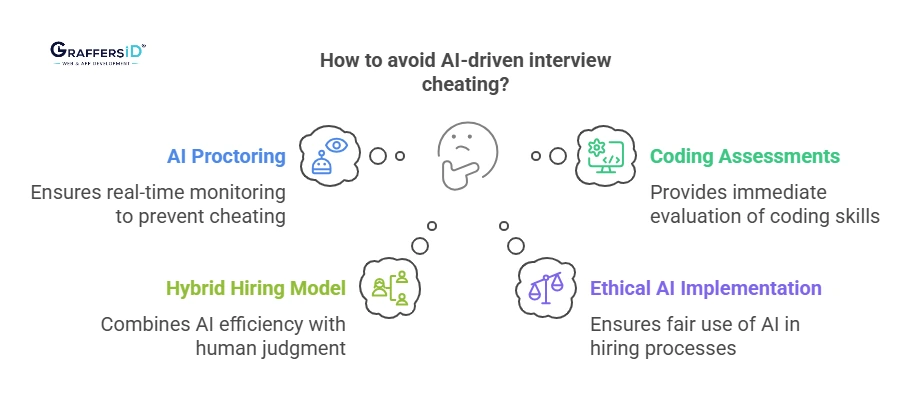
1. AI-Powered Proctoring & Monitoring
Use modern AI-driven monitoring systems to:
- Detect AI-generated code with plagiarism & AI-detection tools.
- Validate human input via typing patterns and keystroke dynamics.
- Monitor eye movements, off-screen activity, and unusual behavior.
- Detect deepfake avatars by analyzing voice modulation, facial micro-expressions, and background consistency.
Tool Examples: Copyleaks AI Detector, HackerRank Proctoring, and HirePro Live Interview.
2. Real-Time Coding Assessments
To address AI-assisted coding solutions, employers can:
- Pair Programming Interviews: Assess problem-solving and communication skills live.
- Whiteboard & Live Coding: Platforms like CoderPad and HackerRank Live prevent copy-paste behavior.
- Debugging Tasks: AI cannot explain why code fails; candidates must demonstrate reasoning.
Read More: AI Hiring: Transforming Talent Acquisition for Tech Teams
3. AI-Human Hybrid Hiring Model
Combine automation with human judgment:
- AI-driven pre-screening plus technical interviews ensure both efficiency and authenticity.
- Assess soft skills, critical thinking, and teamwork, areas AI struggles to replicate.
- Review past projects, GitHub contributions, or open-source work to validate hands-on skills.
Example: A startup detected AI-assisted answers in 30% of applicants through real-time debugging tasks, improving hiring accuracy.
4. Promote Ethical AI Usage in Hiring
To promote fair hiring, tech businesses should:
- Communicate clear policies on AI tool usage.
- Rotate interview formats regularly to prevent cheating strategies from becoming effective.
- Enforce ethical hiring practices and penalize detected AI fraud.
Top Tools to Detect AI-Based Interview Cheating in 2026
| Tool | Problem Solved | How It Works |
|---|---|---|
| Copyleaks AI Detector | AI-generated code/answers | Machine learning identifies AI outputs |
| HackerRank Proctoring | Screen-sharing/tab-switching | Webcam monitoring + plagiarism checks |
| Mettl Secure Exam Browser | External access during tests | Locks screen, disables shortcuts, tracks behavior |
| HirePro Live Interview | Deepfake or impersonation | Face & voice verification + live proctoring |
| Plagscan / Moss | Plagiarized or AI-submitted code | Compares submissions with online repositories |
| Xobin | AI/code-sharing during tests | AI flagging + webcam monitoring |
| Talview Behavioral Insights | Unnatural speech/typing | Analyzes tone, rhythm, and patterns |
Future of AI in Tech Hiring: Efficiency With Ethics
AI offers speed and scalability but must be combined with human oversight:
- AI-Powered Resume Screening & Skill Analysis: Leverage AI to shortlist top candidates efficiently, but ensure final hiring decisions involve human evaluation to verify skills and fit.
- Coding Challenges AI Cannot Solve: Design real-time coding tasks and problem-solving exercises that require reasoning and explanation, preventing AI-generated solutions from bypassing assessments.
- Advocate for Ethical AI Hiring Guidelines: Promote industry-wide standards to prevent AI misuse, maintain fair hiring practices, and ensure transparency in tech recruitment.
Conclusion: Balancing AI & Human Judgment
As virtual interviews and AI-driven assessments dominate tech hiring in 2026, AI-assisted cheating has emerged as a serious challenge. Companies risk hiring developers who lack real skills, which can lead to project delays, technical debt, and security vulnerabilities.
To safeguard hiring quality, tech leaders should:
- Leverage AI-powered monitoring tools to detect plagiarism, deepfakes, and unauthorized assistance.
- Conduct real-time coding and debugging assessments to evaluate true problem-solving skills.
- Enforce ethical AI usage policies and combine automation with human evaluation for balanced decision-making.
By implementing these strategies, organizations can hire skilled developers with confidence, reduce technical risks, and maintain fair, efficient recruitment processes.
At GraffersID, our pre-vetted developers are rigorously screened for real skills and expertise, eliminating risks associated with AI-assisted cheating. Ensure your projects are powered by top-tier talent.
Hire expert developers with GraffersID today!
